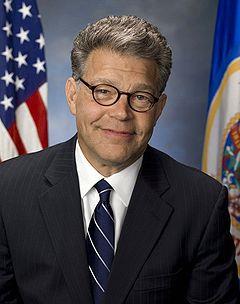

Lucas,
Ok everyone, settle down. Today, we’ll start with a quick history lesson.
The year is 1801. President John Adams -- yes, the same guy that helped
write and signed the Declaration of Independence -- lost his election
for a second term. As Adams served what remained of his presidency, the
Chief Justice of the Supreme Court retired.
The election to replace President Adams wasn’t resolved at this
point. Thomas Jefferson and Aaron Burr were essentially tied. So the political
climate wasn’t exactly calm.
Despite all that, President Adams did his job. He nominated John Marshall
to fill the vacancy on the Supreme Court.
Now, what do you think the Senate did back then? Throw a fit? Refuse to
consider Marshall because of the election? Reject Marshall because they
didn’t like President Adams?
No, no they didn’t. The Senate fulfilled its duty and ultimately confirmed John Marshall in
1801. And Chief Justice Marshall’s court would go on to define the
role of the judiciary in our system of government.
It shouldn’t come as any surprise that the Senate did its job back
then. Five members of that Senate were at the Constitutional Convention.
The players in this history lesson were actual Founding Fathers.
They knew what the Senate’s job was because they’re the ones
who created it.
They knew what my present-day Republican colleagues seem to have forgotten --
the Supreme Court is too important to leave short-handed. Republicans in the Senate can try to use double-talk to get out of their
duty to consider and vote on Judge Merrick Garland -- and believe me,
they have, almost to the point of absurdity.
But we need to take a lesson, in this case, from our Founding Fathers.
Join me in demanding Republicans stop the double-talk and get the Senate
moving on consideration of Judge Garland.
Class dismissed.
Al
